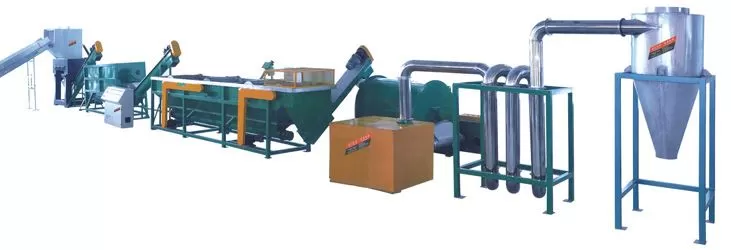Plastic waste is piling up everywhere, and our environment faces significant challenges. We see it on streets, in oceans, and even in our food chain. Addressing this plastic problem is urgent. Plastic waste classification is a critical step in solving this issue. But why is it so important?

Classifying plastic waste helps in recycling and reducing environmental pollution. By sorting, we can effectively manage and process different types of plastic waste, turning them into useful resources.
Interested? Let’s delve into the importance and methods of plastic waste classification and see how it can transform our lives and environment.
Why is Plastic Waste Classification So Important?
The importance of plastic waste classification cannot be overstated. Firstly, it increases recycling efficiency. Different types of plastics require different processing methods, and sorting ensures each plastic type receives the appropriate treatment.
Secondly, plastic waste classification reduces environmental pollution. Unsorted plastic waste ends up in landfills or incinerated, releasing harmful substances into the air and soil. By sorting and recycling, we can effectively control and reduce these harmful substances.
How to Classify Plastic Waste?
Classifying plastic waste is not complicated. First, you need to understand the common types of plastics. The main types are PET, HDPE, PVC, LDPE, PP, PS, and other plastics. Each plastic has a specific identifier symbol and recycling method.
Next, prepare suitable bins or containers to separate different types of plastic waste. Setting up clearly marked sorting bins at home or workplace can greatly improve the accuracy and efficiency of classification.
What is the Environmental Impact of Plastic Waste Classification?
Classified plastic waste can enter the recycling system and be turned into valuable resources. This not only reduces the demand for new plastic production, saving resources, but also decreases greenhouse gas emissions. Additionally, classified plastic waste reduces the burden on landfills, extending their lifespan.
By sorting and recycling, we can effectively minimize the harm of plastic waste to marine and terrestrial ecosystems, protecting biodiversity. Every small act of classification is a significant contribution to environmental protection.
How Can Businesses Participate in Plastic Waste Classification?
Businesses play a crucial role in plastic waste classification. First, they can reduce plastic usage in their production processes, choosing recyclable or biodegradable materials. Second, businesses can establish internal waste sorting systems and encourage employees to participate.
Moreover, businesses can raise public awareness about plastic waste classification through campaigns and education. As a plastic crusher manufacturer, we have firsthand experience in this area and actively promote this concept.
How to Raise Public Awareness of Plastic Waste Classification?
Education and promotion are key. Through community activities, school education, and media campaigns, we can educate more people about the importance and methods of plastic waste classification. Governments and environmental organizations should also play an active role in formulating policies and regulations to promote the implementation of plastic waste classification.
Our goal is to make everyone aware of the importance of sorting and actively participate in it. This is not just for ourselves but for the future generations.
Future Trends in Plastic Waste Classification?
With technological advancements, plastic waste classification and recycling techniques are continuously improving. Smart bins, automated sorting systems, and advanced recycling equipment are revolutionizing this field. We believe that future sorting and recycling will be more efficient and convenient.
Additionally, more businesses and individuals will join the ranks of plastic waste classification, collectively promoting environmental protection. We look forward to a cleaner and more sustainable world.
Conclusion
Plastic waste classification is crucial for environmental protection. Through effective sorting methods, we can significantly reduce plastic pollution and promote resource recycling. Let’s work together to practice plastic waste classification and contribute to the planet’s future.
This is our mission. Let’s take action together!
